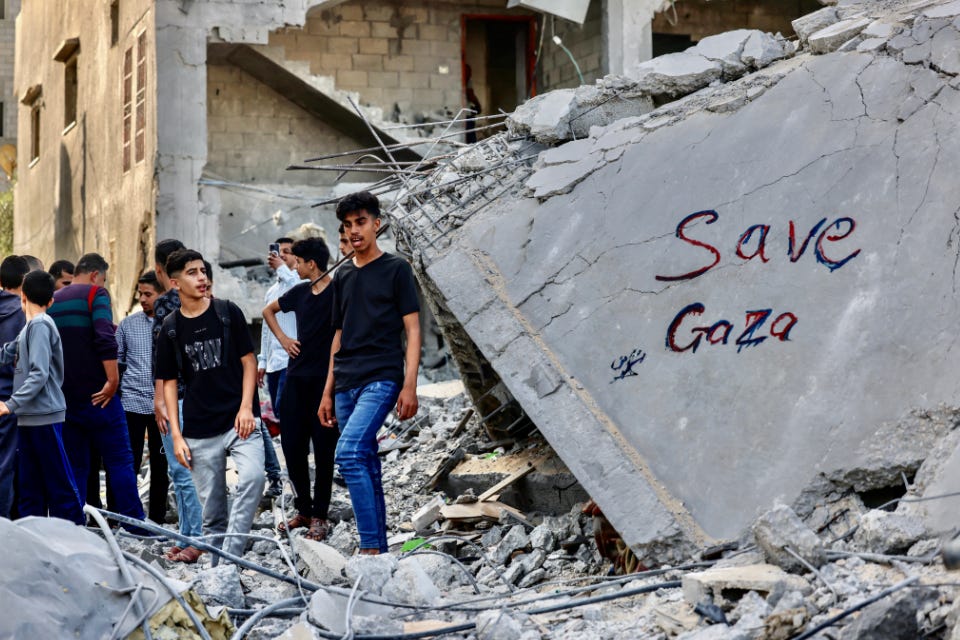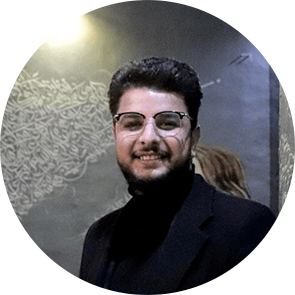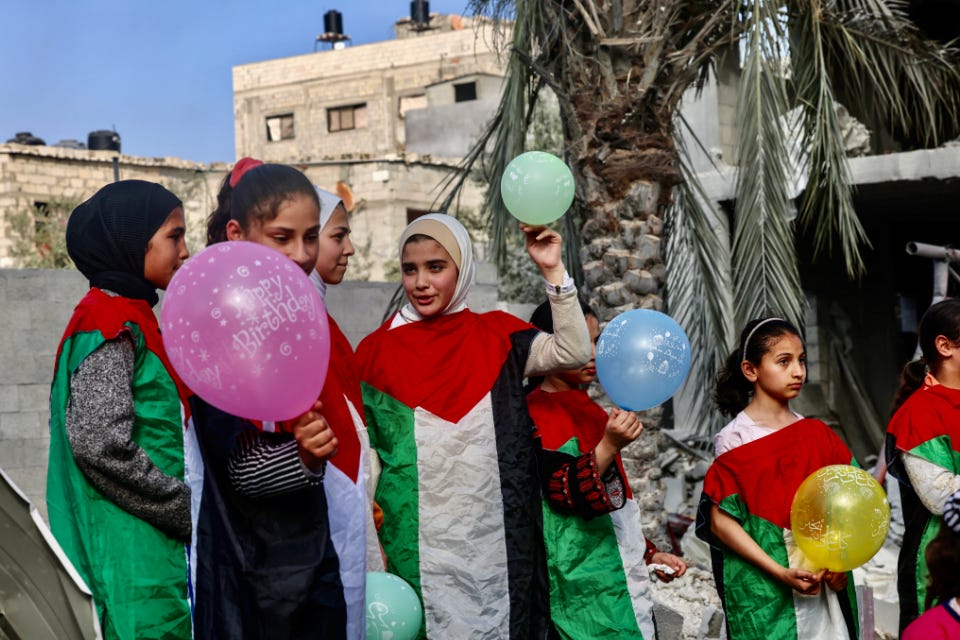It was Monday evening on May 8th 2023 and a few friends and I were sitting in the only open space in Rafah, a Palestinian refugee camp in the southern Gaza Strip. The city is deprived of most signs of normal life except perhaps for the polluted sea that surrounds it from the west. We were discussing the last military escalation wielded against us by Israel and chewing on its bitter aftermath, wondering if we really had recovered at all from its tragic effects.
At 25 years old I have experienced what most of the world's populations have not. I have lived through five brutal aggressions on my home, more than 40 militarised attacks, not to mention siege, poverty, and daily images of death. I have experienced many shades of pain, pain which psychological research centres around the world have pondered and deliberated over how to define and categorise. “Post Traumatic Stress Disorder” I heard you murmur, no, there is no P in PTSD in Gaza. Our trauma does not end. We live anticipating, expecting its return. The only question is, when?

The very next day that question was answered. On May 9th while I was on the phone to a friend in Germany, the sounds of rockets and explosions erupted all around me. Our city and many others across our tiny besieged strip of land were under brutal Israeli shelling once more. Taking with it entire families, dreams and memories. Everyone in the house was panicking, I could hear children screaming in neighbouring houses too. The sky became polluted, taking on the firey colours of hell itself. We couldn’t quite grasp exactly what was happening outside, but we knew for certain who was responsible for this savagery. And because we are familiar with this brutality, a brutality which devours everything in its path, including our souls, exhausted from pain, loss and fear, we did the only thing we could to guard against future pain and misery; my family took refuge in one room so that if a missile hits our house we will all die together, so none of us will have to endure more pain from mourning.
As the bombing became slightly less frequent, we started following the news on the TV. As the news reported on the men the occupation had assassinated, I wondered about the women and children who were merely listed as numbers ticking across the screen. I thought about the last moments they lived through. The moment a ton of explosives collided with the heads of these sweet beings, trapped under siege. Had they enjoyed their last meal? Perhaps they were sketching their dreams on colourful notebooks?
I started to write as tears fell and I could feel my heart grow with sorrow and regret. I imagined if these children were born in London, Paris or Berlin. What would their fate be today? In a parallel world perhaps they would be winning awards in physics, literature and sports, living free under blue skies. They might see their names on TV screens as they sing, dance, create technological advancements for their fellow people. Instead of being breaking news, reduced to a number, an abstraction, a statistic merely symbolising the depravity of Israel’s occupation.
In Gaza, we live on the brink. On the brink of life, on the brink of death. We never know what might happen at any moment; your life is constantly under threat. It’s not just the rockets and indiscriminate killing, but also the geographic and economic blockade that's been in place for more than seventeen years. It’s also the barbed wire that surrounds this dead spot in every direction, a zombie city, a roofless prison in the 21st century. It's the visual pollution that masks the natural beauty, it’s the constant sound of Zanana (drones) above and the electric generators running non-stop due to the lack of fuel in the power stations.
Most of us here have never had the chance to work or travel outside, not even once. In Gaza, people haven’t had experiences such holidaying by plane, climbing a mountain or standing in front of a large orchard filled with greenery, or even talking to people from different cultures and nationalities. Not only does the blockade trap us physically but it also bocks our knowledge, our experience and manipulates our emotions.
We’re in danger of being invisible to the world even when we’re bleeding. We know our voices are rendered to silence in the media around the world. Imagine being bombed, shelled, killed and being presented to the world as the perpetrator. And your voice, your perspective, is excluded from the conversation.
As I write this, more than two million Palestinians are being bombarded with the most advanced-powerful aerial weapons. Heavy rockets and explosive barrels. The continuous explosions target family homes, vehicles, residential towerblocks, cemeteries and hospitals. This is a massacre witnessed by the world in shameful and terrifying silence. The martyrs are countless, with many of them being children under the age of 15.
In Gaza, us youth know how our lives are considered by Israel’s political elite: as political capital for popularity polls. We know that bombing us lends favour and credence to a newly governing coalition, proving its competence in deleting our pasts, presents and futures. Something, from here, it seems the rest of the world enjoys supporting economically, diplomatically and culturally.
I write to let the world know that despite our insistence that we are worthy of more than this existence, we are not heroes. We are just human beings, and if we are injured, blood falls from us too. We sing, dance, play and each of us has our own small dreams. I write because we refuse to be reduced to numbers in their records, we are not put here on this Earth to be a field for testing weapons in their markets. I write because loss has a story that the news does not tell.





